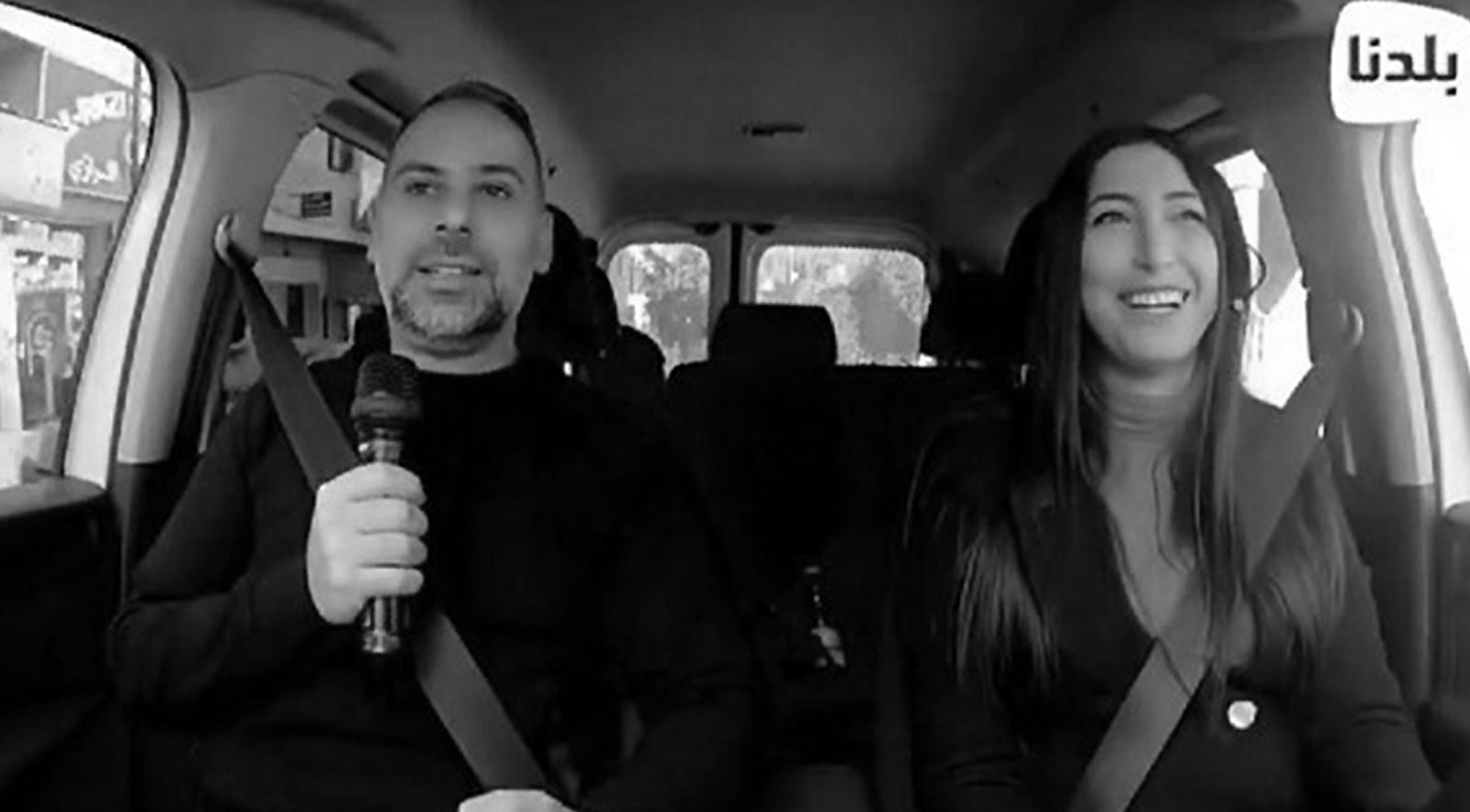
Mirna Alatrash and Aladdin Alabid are a young couple who challenge stereotypes in their work and in life.
This young Palestinian couple from Bethlehem founded the Baladna Media Network, an independent media that is building new dialogue between the community and decision makers, and they are currently chief editor and general manager. They are also partners in life, theirs a highly unusual match in traditional Palestine, Mirna a Christian and Aladdin a Muslim.
Initially started by a group of young people in 2018 as an FM radio station, Baladna Radio, the Baladna Media Network now has an audience of Palestinians from across the world, well beyond the West Bank and the Gaza Strip. Mirna explains that part of Baladna’s conception from the beginning was to tell positive stories about Palestinians.
“When the media writes about Palestine, it is always bad news. We wanted to go beyond the occupation. We wanted to celebrate the success of Palestinians who are presidents, vice-presidents, doctors, actors,” she says. With the recent success of the hit Netflix series ‘Mo’, theirs was perhaps a prescient vision.
Baladna has a particular focus on youth and women in all its work. Young people make up over 30 per cent of all Palestinians and women’s issues are often overlooked by local authorities, yet most have little direct experience with democracy.
“Our society does not understand the meaning of democracy or of elections. We have a lot of work to do to build this knowledge and to educate people, as they do not know their rights and they are afraid to speak out. The last time we had general elections was in 2007. We have a whole generation who do not know their rights. We need to change the mentality here, starting with families, young people and children,” says Aladdin, explaining that Baladna is uniquely placed to take on this work as one of Palestine’s few completely independent media.
He relates that young Palestinians are typically frustrated by their experiences of corruption and nepotism, or wasta as it is called in Arabic, that condemns them to low living standards and deprives them of their rights, in addition to the daily stress of living under Israeli occupation.
An EED grant is helping Baladna to address this frustration, by educating young people and women about their democratic rights, demanding greater accountability of public representatives, and building dialogue between local communities and officials.
As part of the grant, Baladna has launched two programmes that aim to build greater accountability and transparency within local authorities.
In ‘Our Country this Morning’, a Baladna journalist accompanies a local council member or civil servant or a mayor by car on a fact-finding tour through villages and towns where they inspect local facilities and infrastructure and meet with local people and listen to their stories and their challenges. The discussion and meetings are then streamed live via Baladna Radio, TV and across all social networks.
In ‘Without Coordination’, a Baladna journalist makes surprise visits to local councils, public institutions and businesses, particularly those criticised by the public for incompetence, nepotism or corruption.
Speaking of the kind of issues brought up during these visits, Mirna describes a meeting in Beit Fajar near Bethlehem, where local women explained to officials how a lack of basic services and access to water made their lives more difficult. She also describes meetings in other regions, where locals spoke to officials of the importance of activities for women, particularly economic empowerment projects.
“A key part of this project is putting young people and women at the centre as the change-makers. They are addressing the government directly on behalf of the Palestinian community. People come along as they know this is a chance to talk with the people who can really help them,” says Aladdin.
While the programme concept is simple, its implementation is also affected by movement restrictions, including those due to settler violence, and outbreaks of violence within the West Bank and Jerusalem, and political events. For example, in the period following the highly controversial assassination of activist Nizar Banat in June 2021, local government officials refused to speak to the media. Recently too, a press conference organised by the local Wattan News Agency calling for parliamentary elections was attacked by Palestinian security forces.
Baladna also struggles with what they and many other Palestinian organisations refer to as ‘digital apartheid’. Palestinian narratives are consistently blocked from social networks. During the 2022 protests in Jerusalem, many organisations’ posts were removed from social media and accounts were frozen. Baladna also lost access to their Facebook account.
Today, Baladna’s website is its key communications tool, providing an overview of all its work and hosting its television and radio station. The team also use other social media, such as Telegram, WhatsApp and particularly TikTok which has taken off in Palestine.
During the 2022 municipal elections, Baladna ran a highly successful campaign to encourage the local population to take part in the electoral process, running debates with candidates, and arranging meetings with political candidates and local people who informed them of their needs.
Mirna and Aladdin are also hopeful that presidential and parliamentary elections may also be held soon, following their last-minute postponement in April 2021. “We need elections. We need change,” they say.
This article reflects the views of the grantees featured and does not necessarily represent the official opinion of the EED.